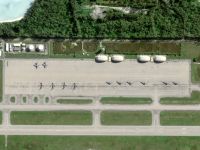Workers in the Gulf Co-operation Council are set to receive lower pay rises in 2016 than ever in the last 10 years, despite the rising cost of living, according to new research.
Professionals working across the region are likely to face a 'double-whammy' of rising living costs coupled with stagnant wage growth, in part caused by cuts in government subsidies.
According to the research by online recruitment firm GulfTalent, real salary increases net of inflation are expected to be significantly lower than in previous years.
The report found that an increasing number of firms have been reducing headcount, particularly in energy and construction. In Saudi Arabia, 14 percent of surveyed firms said they would reduce staffing in 2016, compared with 9 percent in the UAE.
Meanwhile, the report said there had been a marked slowdown in recruitment activity, with employers much more cautious in adding to their payroll. Much of the recruitment activity is now focused on replacement hiring only.
The study also found that salaries across the GCC are forecast to increase at an average of 5.2 percent in 2016, down from 5.7 percent in the previous year.
Saudi Arabia is expected to top the region’s pay increases, at 5.9 percent. However, with inflation in the kingdom forecast at 4.7 percent in 2016, real pay rises net of inflation will average just 1.2 percent.
Professionals in the UAE are expected to enjoy the region’s second highest salary increase at 5.3 percent. Qatar is next with 4.7 percent, followed closely by Kuwait and Oman at 4.6 and 4.4 percent respectively.
Bahrain fares the worst among the six GCC states, with the projected salary increase of 3.7 percent matching the forecast inflation rate exactly, leaving employees with no net increase in their purchasing power.
The research report was based on GulfTalent’s survey of 700 employers and 25,000 professionals across the six GCC states.







